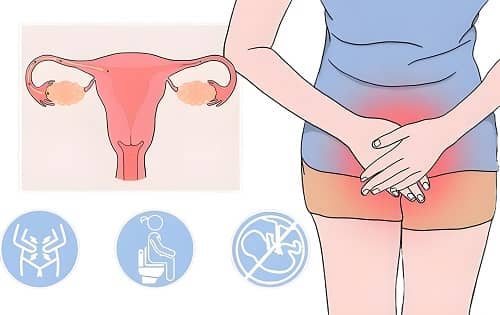Have you been trying to conceive for a long time with no success? Your body may have already signaled “infertility,” but these signs are often overlooked. Understanding the symptoms of infertility is the first step toward resolving the issue.

Table of Contents
What is Infertility?
Infertility refers to the inability of a couple to conceive after one year of regular unprotected intercourse. It is classified into two categories:
- Primary Infertility: The couple has never been able to conceive.
- Secondary Infertility: The couple has conceived before but is unable to conceive again.
Common Symptoms in Women
- Irregular Menstrual Cycles
If your menstrual cycle is irregular, with fluctuating flow or even missed periods, this could indicate ovulation issues such as polycystic ovary syndrome (PCOS) or ovarian dysfunction. - Severe Menstrual Cramps or Pelvic Pain
Intense menstrual cramps or ongoing pelvic pain outside of menstruation may suggest conditions like endometriosis or pelvic inflammatory disease, both of which can affect fertility. - Unexplained Vaginal Bleeding
Vaginal bleeding outside of your menstrual cycle, especially if it is frequent or heavy, could be related to uterine issues such as fibroids or polyps. This warrants medical attention. - Unable to Conceive After One Year
If a couple has been trying to conceive regularly for one year without success, it is a significant symptom, especially if the woman is over 35 years old.
Common Symptoms in Men
- Sexual Dysfunction
Difficulties with erection or ejaculation can be a significant factor affecting fertility. - Testicular Pain or Swelling
Persistent discomfort or swelling in the testicles may indicate conditions such as varicocele, which can negatively impact sperm quality. - No Apparent Symptoms
Male infertility often has no visible symptoms, but poor semen quality (e.g., low sperm count or reduced motility) may still be the cause. Testing is necessary for diagnosis.
How to Address Infertility?
If you or your partner experience any of the symptoms mentioned, it’s recommended to seek a fertility evaluation at a reputable clinic as soon as possible. Additionally, lifestyle changes can play a crucial role:
- Quit Smoking and Limit Alcohol: These habits can significantly impact fertility.
- Maintain a Balanced Diet: Ensure adequate intake of folic acid, vitamins, and minerals.
- Engage in Regular Exercise: Maintaining a healthy weight can improve fertility.
With scientific treatment and lifestyle adjustments, most fertility issues can be resolved. Keep your hope up, and conception may be just around the corner!